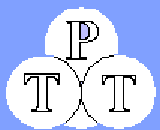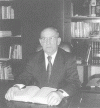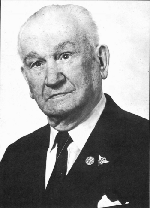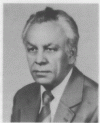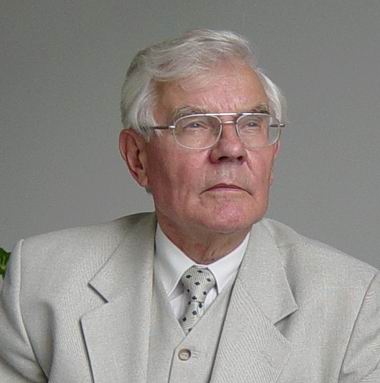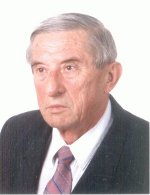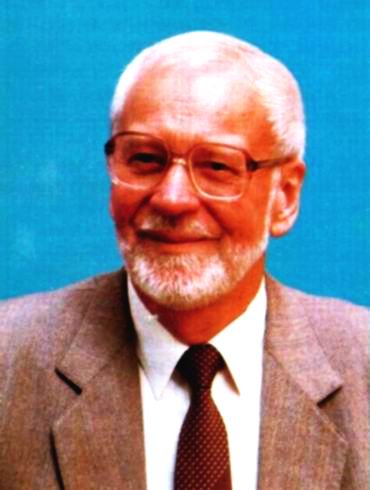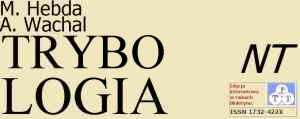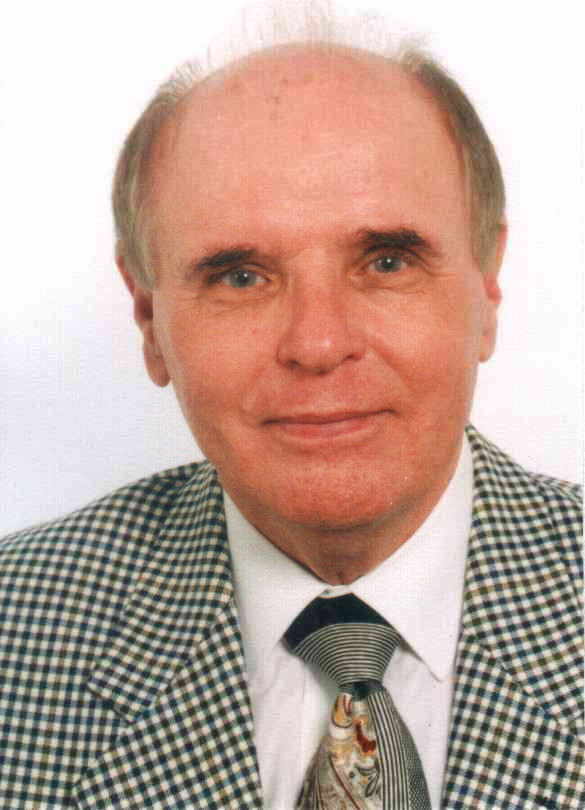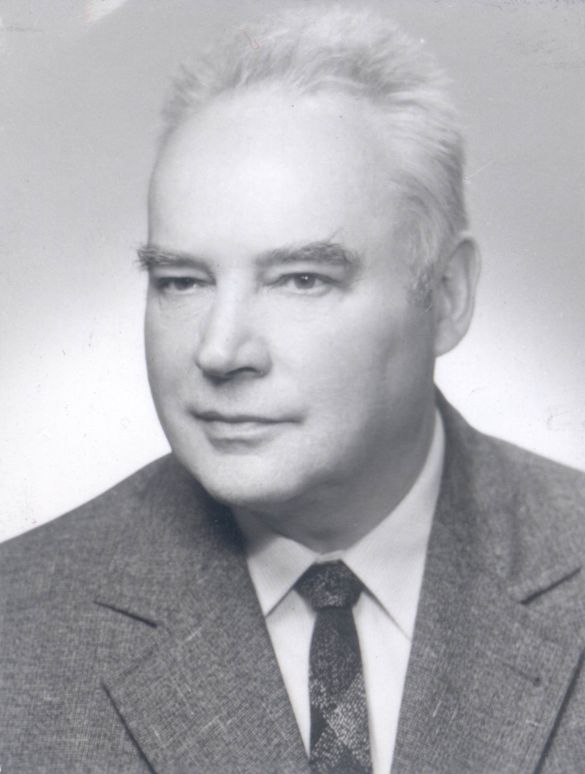|

News from Silesia:
dr hab. Andrzej Posmyk

Oddział Śląski PTT
Wybory 2006.03.31
nowy Zarząd:
prof. dr hab inż. Stanisław Ścieszka, Pol. Śl. Gliwice - Prezes
prof. dr hab. inz. Franciszek Bińczyk, Pol. Śl. Katowice - Vice prezes
dr hab. Andrzej Posmyk, Pol. Śl. Katowice - sekretarz naukowy
dr hab. Władysław Skoneczny, Uniw. Śląski - członek
prof. dr hab. inż. Krzysztof Tubielewicz, Pol. Częstochowska - członek
dr inż. Jerzy Kilarski, Polit Śląska Gliwice - członek
prof. dr hab. inż. Piotr Adamiec, Pol. Śl. Katowice - członek
dr inż. Jacek Spałek, Pol. Śl. Gliwice, Polit. Śląska - członek
Komisja rewizyjna w składzie:
dr Grzegorz Służałek, Uniwersytet Śląski - Przewodniczący
dr inż. Mirosław Witaszek, Polit. Śląska Katowice - członek
dr inż. Andrzej Zaborowski, Polit. Częstochowska -członek
Jest nas 24 członków. Przyjeliśmy nowych:
mgr inż. Bąkowski Henryk
dr inż. Czarnecki Henryk
dr inż. Zaborowski Andrzej

Komentarz Prezesa

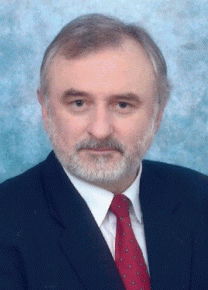
Kolejny rok w funkcjonowaniu Polskiego Towarzystwa Tribologicznego otwieramy zmianą jego władz. Odbyte w zwyczajnym trybie Walne Zebranie obowiązki kierowania Towarzystwem powierzyło kolejnej grupie kolegów, a dotychczasowemu Prezesowi, Panu Profesorowi Stanisławowi Pytko, nadało godność Prezesa Honorowego.
Jesteśmy głęboko wdzięczni Profesorowi Pytko za długoletnie prowadzenie Towarzystwa. Rozległa wiedza, niespożyte siły i życzliwość, to cechy, które dominowały w Jego działaniu od momentu założenia PTT, mając wielce pozytywny wpływ na aktywność środowiska i, przede wszystkim, na klimat, atmosferę koleżeństwa.
Naczelnym naszym zadaniem u progu nowej kadencji jest potwierdzenie swoją działalnością sensu istnienia Towarzystwa.
Należy sobie szczerze powiedzieć, w związku z zauważalnym spadkiem aktywności członków PTT w ramach Towarzystwa, iż dla wielu z nas nie jest to kwestia oczywista. Można to zrozumieć: przyszło nam bowiem funkcjonować, w wymagającej dużego trudu i konieczności dokonywania wyborów, dobie:
- lawinowego rozmnożenia się organizacji naukowych,
- rozpaczliwego poszukiwania skutecznych struktur rozwoju innowacyjności w gospodarce z wykorzystaniem potencjału badawczego, który przecież tworzymy,
- wpisywania się w europejską (międzynarodową) przestrzeń badawczą, któremu towarzyszy rosnąca potrzeba konkurowania z zagranicznymi rywalami nawet we własnym kraju,
oraz
- będących ustawicznie in statu nascendi systemów oceny naszej działalności indywidualnej i instytucjonalnej, od której zależą, ciągle żenująco liche, środki na naukę.
A to tylko niektóre z aspektów naszej codzienności zawodowej, wśród których ma mieć miejsce ów sens działania integracyjnego.
Należę do osób, którzy sens ten widzą tym bardziej. Dlaczego?
W ubiegłym roku odbył się w USA Światowy Kongres Tribologiczny. Brało w nim udział ok. 1000 uczestników. Polscy tribolodzy stanowili na nim zauważalną grupę.
Również w ubiegłym roku odbył się 10. Krajowy Kongres Eksploatacji Urządzeń Technicznych, na którym zdecydowanie najliczniejszą grupę stanowili tribolodzy.
Co dwa lata odbywają się bardzo silnie i licznie obsadzone - w Niemczech kolokwia tribologiczne (Esslingen), a w USA - konferencje WEAR of MATERIALS. Co cztery lata organizowane są kongresy kontynentalne: ASIATRIB, AUSTRIB. Liczba innych konferencji, seminariów, workshopów międzynarodowych i krajowych jest ogromna. Można nawet powiedzieć o istnieniu zjawiska nadaktywności konferencyjnej w tym obszarze wiedzy, co grozi ich inflacją. Ale jest też potwierdzeniem tętnienia życia naukowego w tribologii.
Źródłem siły tribologii jest jej znaczenie gospodarcze: maszyny i urządzenia tracą swoją zdatność eksploatacyjną głównie na skutek tarcia. Wyjaśnianie procesów tarcia stanowi pole działania dla naukowców wielu dziedzin. To stanowi o jej atrakcyjnej interdyscyplinarności. Uzyskana przez tribologów wiedza o procesach tarcia stanowi olbrzymią inspirację dla technologów, konstruktorów, diagnostyków etc. A także, coraz większą, dla specjalistów świata medycznego.
Tribologia jest więc obszarem gospodarczo potrzebnym i naukowo, dzięki swej wyjątkowo bogatej interdyscyplinarności, interesującym. Szeregi tribologów, lub specjalistów innych dziedzin, zajmujących się również problemami tribologicznymi, będą rosły. W ich interesie jest wspólne działanie, umożliwiające funkcjonowanie forum prezentacji osiągnięć, wymiany informacji i doświadczeń, gromadzenia dorobku.
Polska to duży kraj; pomimo niskich nakładów na naukę, ma wiele zespołów badawczych zajmujących się problemami tarcia, zużywania i smarowania. Zespoły te są przyzwoicie wyposażone w aparaturę tribologiczną. Nasze środowisko tribologiczne ma swoje czasopismo naukowe, coroczną krajową Szkołę Tribologiczną, międzynarodowe seminarium INSYCONT i inne międzynarodowe konferencje, seminaria: tribochemiczne, nanotribologiczne, biotribologiczne ...
Granty i inne projekty, doktoraty, habilitacje, profesury - to liczne odniesione sukcesy, których bazą był dorobek naukowy uzyskany w tribologii. Będą dalsze. Będziemy się organizować, wspierać, lobbować. Mamy co robić.
Marian Szczerek
10.02.06

Seminarium: informacje:
dr hab. Andrzej Posmyk

|

Na topie

Zebranie Zarządu 27 kwiecień 2006 godz. 1130
Instytut Technologii Eksploatacji
ul. K. Pułaskiego 6/10, 26-600 Radom
Uchwała Walnego Zebrania Członków z 10 01 2006 o przyjęciu bilansu za 2005 i skwitowaniu Zarządu za okres 2002÷2006r
Uchwała Zarządu z 15 03 2005 o przyznaniu nagrody za najlepszą pracę z zakresu tribologii w Polsce w 2004 roku …
Uchwała Zarządu z 25 01 2005 o przyjęciu bilansu za 2004 r

News


ITC News No. 184

1. 40 Year Anniversary A message from the ITC President ….
2. Report on WTC III Washington DC. USA
The Third World Tribology Congress took place in Washington during 12 – 16 September 2005. It was organised jointly by the STLE and the ASME Tribology Division.
A message of good wishes to the Congress was received from United States President, George W Bush:
„Innovation continues to redefine our lives and is vital to our global economy. This conference is an opportunity for scientists, engineers and researchers from around the world to discuss new ideas and view technological advances in the field of tribology. It will also underscore the importance of tribology in reducing energy waste, conserving natural resources, and protecting our environment.”
„I appreciate participants and all those committed to this important field. Your spirit of ingenuity and professionalism helps extend prosperity and goodwill around the world and build a better future for our citizens.”
The Congress was an outstanding success. Over 900 people from nearly 52 countries attended and 800 papers and exhibits were presented.
The First Lecture was given by Pierre-Gilles de Gennes, Nobel Laureate in Physics 1991.
The ITC President’s address entitled “Tribology Micro and Macro Economics": A Road to Economic Savings" was printed in the October issue of "Tribology and Lubrication Technology."
Full details of these and other presentations can be obtained via www.conferencetoolbox.org/wtc05 or email at wtcinfo@asme.org
There is little doubt that one of the most important features of the Congress was for tribologists and users of tribology from many countries to talk to each other, discuss their mutual problems and successes and generally getting to know each other.
The International Tribology Council expresses warmest thanks to all who contributed the outstanding success of this Congress, in particular to the individual organisers Richard S Cowan (ASME), Selda Gunsel (STLE), Josiah Knight (STLE) and John Tichy (ASME) who had borne the brunt of work during the past few years and of course, Ed Salek Executive Director of the STLE.… .
3. PROFESSOR DAVID TABOR PhD ScD FRS 23-10-1913 to 26-11-2005 The death of Dr David Tabor is a cause of great regret of the world’s tribologists.
David Tabor started his career in Regent St Polytechnic, followed by studies at the Universities of London and Cambridge. He became Professor of Physics at the University of Cambridge in 1973, Head of the Physics and Chemistry of Solids, Cavendish Laboratory and Fellow of Gonville and Caius College, Cambridge.
Together with the late Dr F P Bowden, with whose name he is always inevitably linked as a nucleus of a school of thought, he had a profound influence upon the development of the science of tribology throughout the world.
David Tabor was able to show that the real area of contact was only a very small fraction of the total available area, and that this area was primarily determined by the load applied to the surfaces. This research had an important influence and allowed the Coulomb theory of friction to be discarded in favour of the much more attractive theory based upon atomic and molecular adhesion. He recognised that the real secrets of our understanding of tribological phenomena were not merely resident in the immediate surface atoms, but rather in the surface layer of some depth.
His involvement with the elastic and plastic properties of the surface zone led him to think seriously about the meaning of hardness and finally culminated in his very successful book on the “Hardness of Metals”. Much of the work covered by this book was undertaken in Australia where, during the years of the Second World War, he and Dr Bowden established the Tribophysics Division of the CSIRO in Melbourne.
After the war they were invited back to Cambridge to form a group working on the Physics and Chemistry of Rubbing Solids. Indeed, there are many who automatically associate David Tabor with the Laboratory in Free School Lane, Cambridge as a source of the renaissance of thinking about tribology.
The power of his logic and his ability to express the most complex subjects in terms attractive to both specialist and non-specialist alike was most impressive. His experimental researches had such a masterly level of simplicity and beauty about them that they stood out as classic examples of the power of the scientific method.
His well known Royal Society paper on the growth of junctions and the control exercised by surface contamination, is an example of how he removed one of the major stumbling blocks to the general acceptance of the adhesion theory.
With Dr Bowden, he was primarily responsible for the PTFE type of bearing, a development which has had a significant influence on dry bearing design and application. His theory of rolling friction based upon hysteretic losses is now well known and has led to the development of the modern non-skid motor car tyre.
Dr Tabor’s publications are too numerous to recite. He was an author of more than 100 scientific papers. The 2 books published by Tabor and Bowden on “Friction and Lubrication of Solids” have become the basic texts for all tribologists and very largely contain details of the numerous researches undertaken by the Cambridge School.
In 1972, when the Tribology Gold Medal was founded as the supreme accolade of achievement in tribology, Dr Tabor became its first recipient for his unique contribution to tribology.
As a person, Dr Tabor was a man of infinite kindliness, who was particularly involved in giving help and guidance to the younger generation.
He is survived by his wife Hanna, whom he married in 1943 and two sons.
The world of science and in particular the world of tribology is much poorer for the passing of this great man.
More comprehensive obituaries have been written by Professor Ken Johnson, Professors Ian Hutchings and Brian Briscoe for publication in "Wear” and “Tribology International", as well as in The Times (2/1/06).
4. Chair for John Williams
Dr John Williams, who has for some years been Reader in Engineering Tribology at Cambridge University, has been awarded a personal professorship. Professor Williams has worked in several areas of tribology including machining and metal forming, the tribology of mechanical seals, abrasive wear and shakedown and rolling contact fatigue. More recently together with his colleagues in Cambridge he has become involved with the tribologlical aspects of miniature machines and MEMS devices. Professor Williams is the author of 'Engineering Tribology' a text which has become well-established both in the UK and US and in 1999 was awarded the Tribology Trust's Silver medal. Professor Williams is a Fellow of the Institution of Mechanical Engineers and of the American Society of Mechanical Engineers and has served on the Tribology Committee of the Institute of Physics. He is a member of the editorial boards of several journals and was an Associate Editor of the ASME Journal of Tribology for some six years. For the last thirteen years he has, with his colleague Professor Ian Hutchings, organised the annual Cambridge Tribology Course which has now graduated more than two hundred and fifty delegates principally from industry within the UK and Europe.
5. 2005 Gold Medal Award goes to Prof Dr Dimitri Nikolaevich Garkunov The 2005 Tribology Gold medal has been awarded to Russian tribologist Prof Dr Dimitri Nikolaevich Garkunov for work in the field of selective transfer and of metal hydrogen wear. A full citation of his work is given in the appendix to this newsletter.
6. News from the Society of Tribology and Lubrication Engineers (STLE)
The monthly Newsletter of the STLE is conveniently located in web format for members and non-members to read. It can be found at:
www.stle.org/update_newsletter/index.cfm
Information about the 2006 Joint Conference (with ASME) can also be obtained from the STLE web site at:
www.stle.org/jtc/index.cfm
7. New tribology magazine in Russia
The Association of Tribology Engineers of Russia will publish a new magazine for engineers under the title "Tribotecnic".
8. Web Site Information … .
9. Meetings/Conferences
7th – 11th May 2006 61st Annual Meeting (STLE) (Alberta, Canada)
19th - 21st May 2006 38th Aerospace Mechanisms Symposium (Virginia, USA)
14th – 16th June 2006 Lubrication Management and Technology (Lubmat ’06) (UK)
12th – 14th July 2006 Tribology 2006 (London, UK)
29th Aug – 1st Sept 2006 4th Polish International Tribology Conference
4th – 6th Sept 2006 Tribology in Environmental Design 2006 (UK)
12th – 15th Sept 2006 33rd Leeds Lyon Symposium (Leeds, UK)
14th – 16th Sept 2006 7th International Symposium INSYCONT (Cracow, Poland)
27th – 29th Sept 2006 14th Annual Cambridge Tribology Course
11th – 13th October 2006 IXth International Symposium Intertribo 2006 (Slovak Rep.)
23rd – 25th October 2006 International Joint Tribology Conference (Texas, USA)
|

Konferencje w Polsce

Seminarium Naukowe: „Mechanika w Medycynie”
8-9 wrzesień, 2006
Boguchwała, Rzeszów, Poland
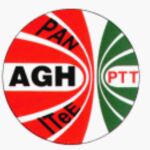 7th International Symposium INSYCONT'06 ENERGY AND ENVIRONMENTAL ASPECTS OF TRIBOLOGY 7th International Symposium INSYCONT'06 ENERGY AND ENVIRONMENTAL ASPECTS OF TRIBOLOGY
will be held September 14-16 , 2006 Cracow, Poland.

Kronika


ITC Conference

BALTTRIB' 2005 17-18 November 2005
WTCIV 2009

Conference

International Conference Tribology of Alternative Fuels and Ecolubricants May 29-31, 2006
Vienna Region, Austria; On the site of PTT

Stała

Szanowni Koledzy
Każda Organizacja w tym i PTT, aby mogła funkcjonować musi mieć zebrane składki od swoich członków. W naszej działalności zaniedbujemy trochę ten problem i z tego tytułu mamy na końcu roku trudności w wypłaceniu niektórych należności.
Zwracam się zatem do Koleżanek i Kolegów i wpłacanie na nasze konto :
Nr 92 1060 0076 0000 4010 4020 2504
Bank Przemysłowo- Handlowy PBK S.A.
ul. Nowogrodzka 50,
00-693 Warszawa,
składek za ten rok i lata poprzednie (jeżeli składki nie były zapłacone).
Składka roczna wynosi 30 zł;
Druk przekazu pocztowego 340 026 b.
Nasz adres:
Polskie Towarzystwo Tribologiczne (PTT)
ul. Żwirki i Wigury 31, 02-091 Warszawa
Serdecznie Wszystkich
Naszych Członków
pozdrawiam.
Stanisław PYTKO
Honorowy Prezes PTT
|
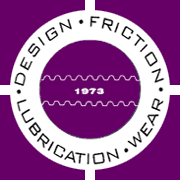
![]()


